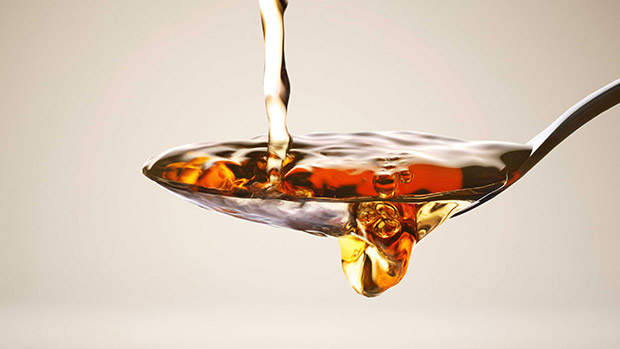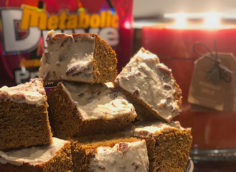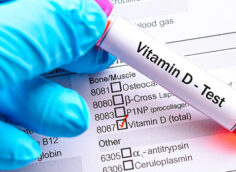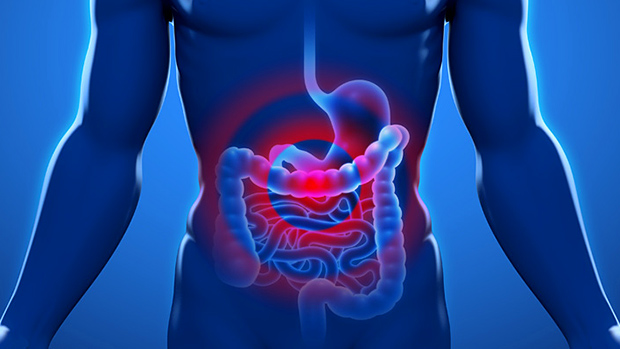Most people know apple cider vinegar as the stuff you reluctantly pour over your salad when you're out of ranch dressing, but it actually has a fairly noteworthy past. The ancient Persians allegedly used it to prevent weight gain, and if that lean Xerxes from the movie 300 is evidence of its efficacy, sign me up.
Samurai warriors were also said to drink it for added strength and power, and in more recent times it was used in the Civil War and WWI to treat battlefield wounds. Previous generations of mommas and grand mommas counted on it to treat mushroom poisoning, dandruff, toothaches, myalgia, neuralgia, arthralgia, mastalgia, and any other kind of algia that ailed ya'.
But the medicinal purposes of apple cider vinegar (ACV) largely faded into memory until some modern studies on its effects began to surface, along with some renewed interest from granola crunchers.
It seems this elixir, made from fermented apples, has a whole host of healthful benefits, among them the following:

Several studies have confirmed this, and one study reports that ACV raised insulin sensitivity at the 60-minute post-meal point by an impressive 34%. It does this because acetic acid (vinegar) suppresses disaccharidase activity, giving it physiological effects similar to metformin, a drug used to treat type II diabetes.
Another study took 29 people and divided them into three groups: One group with type II diabetes, one with pre-diabetic signs, and one group that was healthy. All were given apple cider vinegar before a meal. The results were pretty impressive:
- All three groups had better blood sugar readings with vinegar than with placebo.
- The group with diabetes improved blood sugar by 25 percent.
- The group with pre-diabetic symptoms had lower blood sugar than even the healthy group.
- The group with pre-diabetic symptoms benefitted the most as their blood glucose concentrations were cut almost in half.
A follow-up study also revealed that the continued use of vinegar led to an average weight loss of two pounds in four weeks, and another found that when people with type II diabetes took two tablespoons of apple cider vinegar before bed, their fasting blood sugar test the next morning was lowered by 4 to 6 percent.
There's some question as to whether ACV is a prebiotic, a probiotic, or both. The unpasteurized version appears to at least promote the health of the microflora in your gut. However, labeling ACV as probiotic is a little trickier.
The unpasteurized version contains what purveyors of ACV call "the mother," which are the strands of protein, enzymes, and bacteria that give the product its murky appearance. Since the unpasteurized version contains these bacteria, it's thought by some to be a probiotic, but in truth, the bacteria contained in ACV have not, as of yet, been shown to survive GI transit.
Regardless, ACV does appear to be beneficial to existing bacteria, along with aiding in the digestion of proteins and fats by stimulating the release of stomach acid.

I don't know for a fact that commercial deodorants and antiperspirants are unhealthy. There aren't really any conclusive studies on the subject, but it just makes sense that slathering some perfumed, aluminum-based chemical muck on your armpit isn't the healthiest thing you can do to your body.
As such, using ACV as a "natural" deodorant makes a lot of sense. Soak a cotton swab with it and then wipe your armpits. Let it dry and then squirt on a few puffs of cornstarch baby powder. The acetic acid in the ACV wipes out the bacteria that cause body odor and the cornstarch will keep you relatively dry.
Maybe you'll smell like the Cobb salad at Denny's, but at least you won't gradually turn your armpit into an aluminum frying pan or get cancer. No, no, just kidding. The distinct ACV scent wears off in a few minutes.
First off, opt for the unpasteurized, organic, unfiltered stuff that's made by earth mothers who wear bras made out of macraméd hemp and who sleep in the forest.
Secondly, don't drink it straight. If you do so for long enough, it'll wear away the enamel on your teeth and maybe even start to burn a hole through your esophagus. It is, after all, an acid.
Mix two tablespoons in water or use it over your salad. One 2-tablespoon serving per day is probably all you need.
- Johnston CS et al, Vinegar Improves Insulin Sensitivity to a High-Carbohydrate Meal in Subjects With Insulin Resistance or Type 2 Diabetes Care. Diabetes Care. 2004 Jan;27(1):281-2. PubMed.





